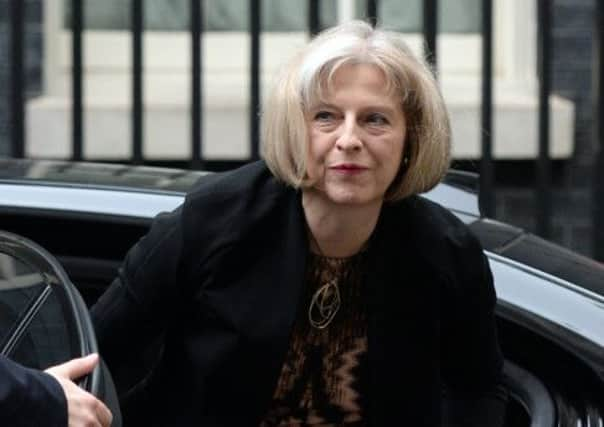Emergency law needed ‘to protect UK’ - PM


The Prime Minister said events in Iraq and Syria showed now was not the time to “scale back” on surveillance.
Mr Cameron and his Liberal Democrat deputy Nick Clegg have struck a deal on the measures after the junior coalition party blocked previous plans for a “snooper’s charter”.
Advertisement
Hide AdAdvertisement
Hide AdMr Cameron said: “It is the first duty of government to protect our national security and to act quickly when that security is compromised. As events in Iraq and Syria demonstrate, now is not the time to be scaling back on our ability to keep our people safe.
“The ability to access information about communications and intercept the communications of dangerous individuals is essential to fight the threat from criminals and terrorists targeting the UK.”
The Government has been forced to act as a result of a European Court ofJustice (ECJ) ruling in April that a European Union data retention directive, which was implemented by Labour in 2009, was invalid because it interferes in a particularly serious manner with the fundamental right to respect for private life.
Downing Street said the emergency Data Retention and Investigation Powers Bill would “enable agencies to maintain existing capabilities”, bring in tougher oversight of monitoring, and include a “sunset” clause requiring it to be renewed after two years.
Advertisement
Hide AdAdvertisement
Hide AdMr Cameron said there would be “grave” consequences if the Government did not make the changes.
“I want to be very clear that we are not introducing new powers or capabilities - that is not for this Parliament. This is about restoring two vital measures ensuring that our law enforcement and intelligence agencies maintain the right tools to keep us all safe,” he said.
Mr Clegg said: “We know the consequences of not acting are serious, but this urgency will not be used as an excuse for more powers, or for a ‘snooper’s charter’.
“I believe that successive governments have neglected civil liberties in the pursuit of greater security. We will be the first Government in many decades to increase transparency and oversight, and make significant progress in defence of liberty.
Advertisement
Hide AdAdvertisement
Hide Ad“But liberty and security must go hand in hand. We can’t enjoy our freedom if we’re unable to keep ourselves safe.”
The proposals were discussed at an emergency Cabinet meeting this morning, and will be fleshed out by Mr Cameron and Mr Clegg at a rare joint press conference. Home Secretary Theresa May will then make a statement to parliament.
Police and security services had raised fears that without a legal underpinning and business need to keep information, companies would start deleting communications data that is often crucial for investigations into a range of serious crime including terrorism, child pornography and drugs trafficking.
The Bill, which is just six clauses long, will mean firms can retain data for 12 months. It is expected to go before the Commons on Tuesday, and be passed by both Houses by the end of the week.
Advertisement
Hide AdAdvertisement
Hide AdCoalition sources said the Labour leadership had been briefed last week and were thought to be supportive. Lib Dems who strongly opposed the so-called ‘snooper’s charter’, such as Julian Huppert, have been closely involved in designing the safeguards.